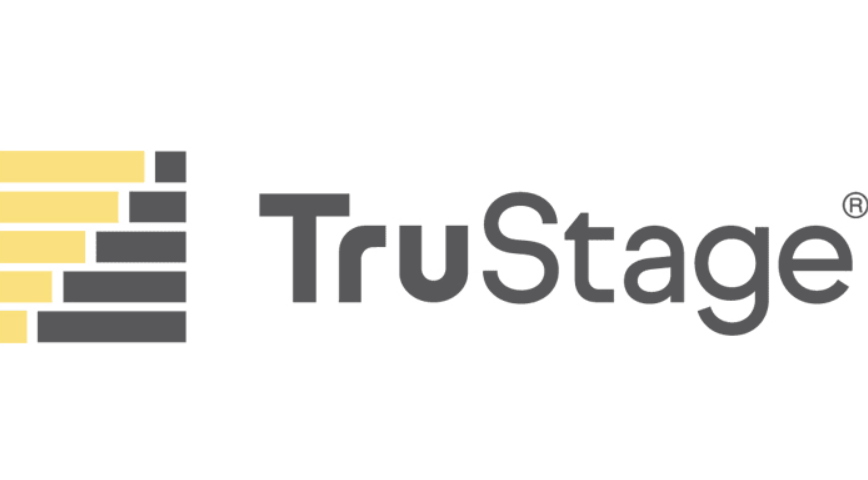Understanding the Basics: Types of Insurance Coverage
Introduction to Insurance Coverage
Situasi ID – Insurance is a cornerstone of financial planning and risk management. It provides a safety net against unforeseen events and helps individuals, families, and businesses mitigate potential losses. Understanding the basics of insurance coverage is essential for making informed decisions about protecting yourself, your loved ones, and your assets.
What is Insurance?
At its core, insurance is a contract between an individual or entity and an insurance company. In exchange for regular premium payments, the insurance company agrees to provide financial protection against specified risks, such as property damage, illness, disability, or death.
Importance of Insurance Coverage
Insurance coverage is crucial for safeguarding against financial devastation caused by accidents, natural disasters, health crises, or other unforeseen circumstances. It offers peace of mind and financial security, allowing individuals and businesses to focus on their goals without the constant worry of potential losses.
Types of Insurance Coverage
Understanding the various types of insurance coverage available is the first step in selecting the right policies to meet your needs. Let’s explore some common types of insurance:
Life Insurance
Life insurance provides financial protection to beneficiaries in the event of the insured’s death. There are several types of life insurance policies, including:
- Whole Life Insurance: Provides coverage for the entire life of the insured and includes a cash value component that accumulates over time.
- Term Life Insurance: Offers coverage for a specified term or period, typically ranging from 10 to 30 years.
- Universal Life Insurance: Offers flexibility in premium payments and death benefits, allowing policyholders to adjust coverage levels as needed.
Health Insurance
Health insurance covers medical expenses and provides access to healthcare services. It can be obtained through various sources, including:
- Individual Health Insurance: Purchased by individuals to cover medical expenses for themselves and their families.
- Group Health Insurance: Offered by employers or organizations to provide coverage for groups of employees or members.
- Medicare: Federal health insurance program primarily for individuals aged 65 and older and those with certain disabilities.
Auto Insurance
Auto insurance provides financial protection against damages resulting from accidents or theft involving vehicles. It typically includes the following types of coverage:
- Liability Coverage: Covers damages to third parties for bodily injury or property damage.
- Collision Coverage: Pays for repairs or replacement of the insured vehicle in the event of a collision with another vehicle or object.
- Comprehensive Coverage: Covers damages to the insured vehicle caused by events other than collisions, such as theft, vandalism, or natural disasters.
Homeowners Insurance
Homeowners insurance protects homeowners against financial losses resulting from damage to their property or liability for injuries occurring on their premises. It includes coverage for:
- Property Coverage: Reimburses homeowners for repairs or replacement of their dwelling and personal belongings.
- Liability Coverage: Protects homeowners against lawsuits arising from bodily injury or property damage to others.
- Additional Living Expenses Coverage: Covers additional living expenses if the home becomes uninhabitable due to covered perils.
Renter’s Insurance
Renter’s insurance provides similar protections to homeowners insurance but is tailored for tenants renting a property. It typically includes:
- Personal Property Coverage: Protects renters’ personal belongings against theft, damage, or loss.
- Liability Coverage: Covers legal expenses and damages resulting from lawsuits filed against the renter.
- Additional Living Expenses Coverage: Pays for temporary housing and living expenses if the rental unit becomes uninhabitable.
Disability Insurance
Disability insurance replaces a portion of lost income if the insured becomes unable to work due to a disabling injury or illness. There are two main types of disability insurance:
- Short-Term Disability Insurance: Provides benefits for a limited duration, usually up to one year.
- Long-Term Disability Insurance: Offers coverage for an extended period, often until retirement age, if the insured remains disabled.
Business Insurance
Business insurance protects companies against financial losses resulting from various risks and liabilities. It may include:
- Property Insurance: Covers damages to buildings, equipment, and inventory due to covered perils.
- Liability Insurance: Protects businesses from lawsuits and legal claims filed by third parties.
- Business Interruption Insurance: Compensates businesses for lost income and operating expenses during periods of interruption or closure.
Travel Insurance
Travel insurance provides coverage for unexpected events that may occur before or during a trip. It typically includes:
- Trip Cancellation Coverage: Reimburses travelers for prepaid and non-refundable expenses if they need to cancel their trip due to covered reasons.
- Medical Coverage: Covers medical expenses incurred while traveling, including emergency medical treatment and evacuation.
- Baggage Loss Coverage: Compensates travelers for lost, stolen, or damaged luggage and personal belongings.
Pet Insurance
Pet insurance helps cover veterinary expenses and medical care for pets. It may include coverage for:
- Accident Coverage: Covers injuries resulting from accidents, such as broken bones or lacerations.
- Illness Coverage: Covers medical treatment for illnesses, diseases, or chronic conditions.
- Wellness Coverage: Provides reimbursement for routine veterinary care, such as vaccinations, exams, and preventive treatments.
Flood Insurance
Flood insurance protects property owners against losses resulting from flooding, which is not typically covered by standard homeowners or renters insurance policies. There are two main types of flood insurance:
- Standard Flood Insurance: Offered through the National Flood Insurance Program (NFIP) and provides coverage for buildings and personal property.
- Excess Flood Insurance: Supplemental coverage available for properties located in high-risk flood zones or areas prone to severe flooding.
Factors Influencing Insurance Coverage Choice
Several factors should be considered when selecting insurance coverage to ensure adequate protection and affordability:
Personal Circumstances
Individuals should assess their unique needs, lifestyle, and family situation when choosing insurance policies.
Financial Considerations
Budgetary constraints and financial goals play a significant role in determining the types and amounts of insurance coverage individuals can afford.
Legal Requirements
Certain types of insurance, such as auto insurance, may be required by law in many jurisdictions to operate vehicles legally.
Lifestyle Factors
Considerations such as occupation, hobbies, travel habits, and health status can impact insurance needs and risk profiles.
Understanding Policy Limits and Deductibles
Understanding the terms and conditions of insurance policies, including policy limits and deductibles, is essential for making informed decisions and managing expectations regarding coverage and costs.
Importance of Policy Limits
Policy limits determine the maximum amount an insurance company will pay for covered losses or claims. It’s essential to select policy limits that provide adequate protection without being overly burdensome.
Deductibles Explained
Deductibles represent the amount policyholders must pay out of pocket before their insurance coverage kicks in. Choosing higher deductibles can lower premium costs but may result in higher out-of-pocket expenses in the event of a claim.
How Policy Limits and Deductibles Affect Premiums
Policy limits and deductibles directly impact insurance premiums, with higher limits and lower deductibles typically resulting in higher premiums and vice versa.
The Claims Process
Filing an insurance claim can be a complex and stressful experience. Understanding the claims process can help policyholders navigate the system more effectively.
Filing a Claim
Policyholders should promptly notify their insurance company of any covered losses or incidents and provide relevant documentation to support their claim.
Claims Investigation
Insurance companies conduct investigations to assess the validity and extent of claims, which may involve reviewing documents, conducting interviews, and inspecting damaged property.
Settlement Negotiation
Policyholders and insurance adjusters may engage in negotiations to reach a fair and equitable settlement that adequately compensates for covered losses.
Claim Denial and Appeal Process
If a claim is denied or disputed, policyholders have the right to appeal the decision and seek resolution through internal appeals processes or legal channels if necessary.
Tips for Choosing the Right Insurance Coverage
Selecting the right insurance coverage requires careful consideration and research. Here are some tips to help you make informed decisions:
Assessing Coverage Needs
Evaluate your specific insurance needs based on your personal circumstances, assets, liabilities, and risk tolerance.
Comparing Quotes from Multiple Providers
Obtain quotes from several insurance companies to compare coverage options, premiums, deductibles, and policy terms.
Understanding Policy Terms and Conditions
Read and understand the terms, conditions, and exclusions of insurance policies before purchasing coverage to avoid surprises or misunderstandings.
Seeking Professional Advice
Consult with insurance agents, brokers, or financial advisors to get expert guidance and recommendations tailored to your individual needs and objectives.
Common Misconceptions About Insurance Coverage
Despite its importance, insurance coverage is often misunderstood. Let’s debunk some common misconceptions:
Insurance is Too Expensive
While insurance premiums can be costly, the financial protection and peace of mind they offer often outweigh the expense.
Young and Healthy Individuals Don’t Need Insurance
Accidents and unforeseen events can happen to anyone at any age. Having insurance coverage ensures you’re prepared for the unexpected.
Insurance Companies Always Deny Claims
While claim denials can occur, insurance companies are legally obligated to honor valid claims that meet policy requirements.
Insurance is Only for High-Risk Individuals
Insurance is designed to protect individuals and businesses of all risk levels from financial losses and liabilities.
The Future of Insurance Coverage
The insurance industry continues to evolve in response to changing market dynamics, technological advancements, and regulatory developments. Some key trends shaping the future of insurance coverage include:
Technological Advancements in Insurance
Emerging technologies such as artificial intelligence, data analytics, and digital platforms are transforming insurance processes, products, and customer experiences.
Shifts in Consumer Behavior
Changing consumer preferences and expectations are driving demand for more personalized, transparent, and accessible insurance solutions.
Regulatory Changes
Regulatory reforms and legislative initiatives may impact insurance market dynamics, product offerings, and consumer protections.
Conclusion
In conclusion, understanding the basics of insurance coverage is essential for protecting yourself, your loved ones, and your assets against unforeseen risks and liabilities. By familiarizing yourself with the types of insurance available, factors influencing coverage choices, and the claims process, you can make informed decisions that align with your needs and priorities. Remember to assess your coverage needs regularly, compare options from multiple providers, and seek professional advice when necessary to ensure you have the right protection in place.
FAQs
1. How do I know if I need a particular type of insurance?
Assess your individual circumstances, financial situation, and risk tolerance to determine the types of insurance coverage that are essential for protecting your assets and mitigating potential losses.
2. What factors should I consider when comparing insurance quotes?
When comparing insurance quotes, consider factors such as coverage limits, deductibles, premiums, policy terms, exclusions, and the financial strength and reputation of the insurance company.
3. What should I do if my insurance claim is denied?
If your insurance claim is denied, review the denial letter carefully to understand the reasons for the denial. You may have the option to appeal the decision or seek assistance from a legal professional specializing in insurance matters.



